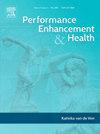英国新型安康修复肽的使用情况:网络统计结果
IF 2.9
Q2 HOSPITALITY, LEISURE, SPORT & TOURISM
引用次数: 0
摘要
最近,人们对以促进健康为目的的合成肽激素的兴趣激增,包括BPC-157, TB-500和CJC-1295。随着这些药物越来越多地通过电子商务网站等在线平台获得,本研究旨在了解服用这些药物的用户体验,以及数字论坛空间促进共享民间药理学发展和进一步减少土著危害的方式。数据来自肽相关论坛帖子的网络图,包括493个独特的线程,总计近15,000个帖子。采用主题分析法对数据进行分析。研究结果分为两个主要部分,包括肽使用的动机和在线民间药理学。在这些章节的第一部分,研究结果包括:肽用于损伤康复的目的,包括手术后恢复;多肽的日常健康使用,包括抗衰老,特别关注那些希望回到健身房进行美学和一般健康训练的老年男性;以及在健康相关问题的医疗服务提供者的负面经历后寻求黑市肽之间的关系。在第二部分,关键主题涉及:关于使用的社区知识交流,包括社区分发减少危害信息;社区对多肽效用限制的理解,以及产品不像预期那样起作用的经验;关于产品质量的信息共享,以及与“诈骗”卖家和替代或劣质产品有关的潜在危害。结论表明,与多肽相关的新兴民间药理学已经在论坛空间中发展起来,它告知并鼓励使用。许多老年男性似乎为了日常健康目的而服用多肽,这表明在公共卫生工作中需要特别关注这一人群。医疗保健提供者的问题似乎导致用户访问黑市肽,这表明针对肽的医疗保健从业人员的具体教育可能是重要的。本文章由计算机程序翻译,如有差异,请以英文原文为准。
Novel wellbeing and repair peptide use in the UK: Netnographic findings
Recently, there has been an explosion of interest in synthetic peptides hormones promoted for wellbeing enhancement purposes, including BPC-157, TB-500 and CJC-1295. With these drugs increasingly accessible through online platforms such as e-commerce sites, this research seeks to understand user experiences of taking these drugs, and the ways in which digital forum spaces facilitate the development of a shared folk pharmacology and further indigenous harm reduction.
Data is drawn from a netnography of peptide-related forum posts, encompassing 493 unique threads totalling almost 15,000 posts. Thematic analysis was used to analyse the data.
Findings are split into two major sections, encompassing motivations for peptide use, and online folk pharmacology. In the first of these sections, findings explored include: Peptide use for the purposes of injury rehabilitation, including post-surgery recovery; Everyday wellbeing use of peptides, including for anti-ageing, with a particular focus on older men wishing to return to gym training for aesthetic and general health purposes; And the relationship between seeking black market peptides following negative experiences with healthcare providers for wellbeing-related issues.
In the second section, key themes relate to: Community knowledge exchange regarding use, including community distribution of harm reduction information; Community understandings of the limits to utility of peptides, and experiences of product not working as anticipated; And information sharing regarding product quality, and potential harms relating to ‘scam’ sellers and substituted or poor-quality product.
Conclusions show that an emergent folk pharmacology relating to peptides has developed in forum spaces, which informs and encourages use. Many older men appear to be taking peptides for everyday wellbeing purposes, suggesting a need for specific focus on this population in public health work. Issues with healthcare providers appeared to lead users to accessing black market peptides, suggesting specific education for healthcare practitioners around peptides may be important to pursue.
求助全文
通过发布文献求助,成功后即可免费获取论文全文。
去求助
来源期刊

Performance enhancement and health
Social Sciences-Health (social science)
CiteScore
4.70
自引率
0.00%
发文量
27
审稿时长
57 days
 求助内容:
求助内容: 应助结果提醒方式:
应助结果提醒方式:


